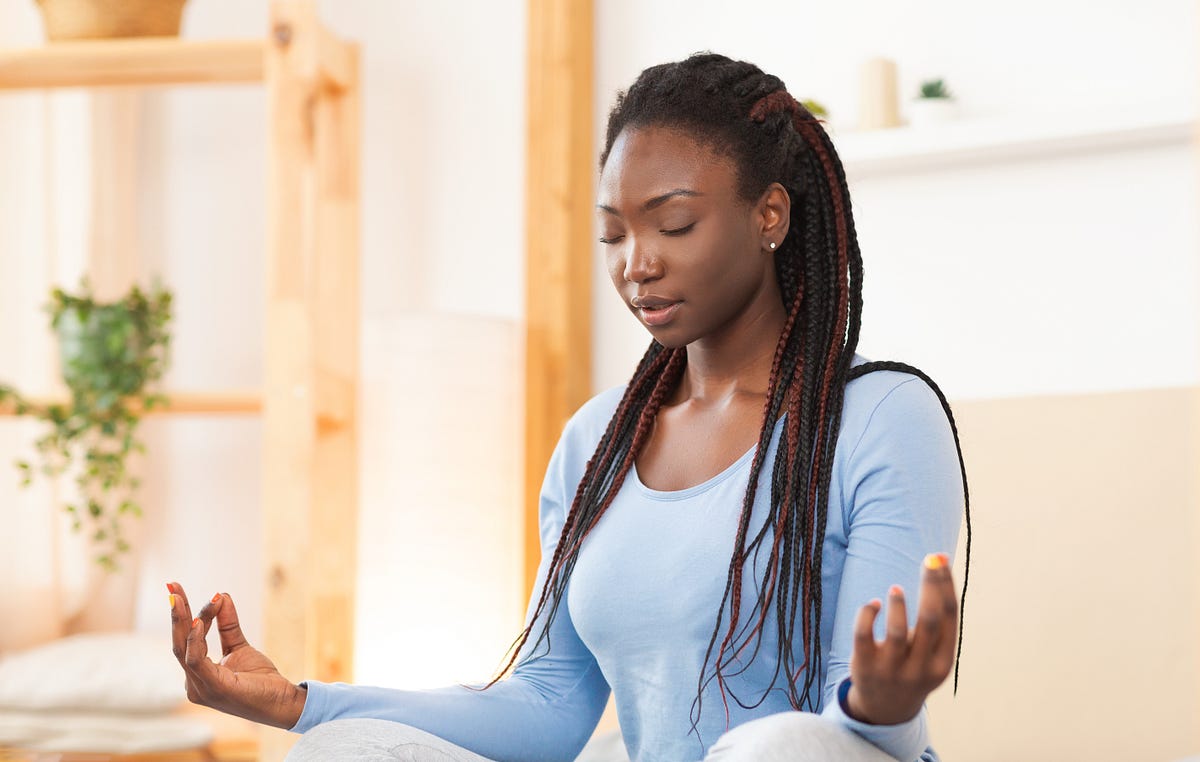
If you feel like it’s not working, that doesn’t mean there’s no hope.
I’ve been on a journey to improve my mental and physical health for the past four years. It’s a winding road sometimes, but I’ve made a lot of progress in the past few years. I’ve been approaching this in a variety of ways, everything from cognitive-behavioral therapy to meditation, yoga, and exercise.
It’s a lot of work sometimes to do what is best for your mental and physical health. I’m mostly exploring meditation for its mental health benefits, but it has a wealth of physical health benefits that have also been scientifically proven to be a helpful intervention. When you’re not in a great spot, it’s hard to get started. But no matter what your motivation is for trying meditation, there may be some growing pains when you get started. Not everyone can just sit in a quiet place with a straight back and immediately get into meaningful meditation.
Meditation is highly personal. We all do things in different ways and we all approach things from different mindsets. There’s not a “one-size-fits-all” meditation approach that will work for everyone. If you’re struggling to meditate, it’s important not to immediately blame yourself for it.
Before you can meditate, you need to be open to the principles of self-acceptance and mindfulness.
“If you want to conquer the anxiety of life, live in the moment, live in the breath.”
― Amit Ray
When I first started practicing yoga and trying meditation, the messages didn’t resonate with me. They didn’t feel sincere to real. All the “forgive yourself, accept yourself, and love yourself” speeches just felt like idealistic nonsense at first.
I think part of that feeling might come from how I was raised. Growing up in a very small town in suburban America, being different was like a crime. If you were different, your family and all the neighbors gossiped about you. I almost feel like my little town with a population of less than 2,000 is like going into a time warp to 50 years in the past. Sadly, that also means a lot of people there aren’t very progressive.
With that background, even yoga and meditation were viewed as something strange, something to judge people for. I think that’s part of why I had such a hard time getting started — I was afraid to be judged for being different.
No matter what your reasons are, if you’re having a hard time getting started, you might need to do a little self-introspection and take a deeper look at what might be creating those barriers. There could be something in the subconscious that’s making it hard to believe these positive messages. It could be something in your upbringing like it was for me.
It takes experimenting to see which meditation approaches work best for you.
Another thing that has really helped me practice meditation more consistently and be mindful with sincerity is realizing that not every meditation technique out there works for me. If you’re finding that some approaches aren’t working for you, that’s completely okay. We’re all unique individuals. We have different learning styles, different personal preferences. There’s a lot of beauty in that uniqueness, but it does also mean that some things will appeal to you and some things won’t.
If you want to get into meditation but you’re finding it hard, try different techniques and approaches. Guided meditations can be a big help. In these, a teacher will lead you through the stages of starting your meditation, deepening your breath, and quieting your thoughts. These gentle nudges can be very helpful if your mind does start to wander. Beyond that, learning from kind meditation teachers who encourage you to come back to mental stillness after acknowledging your thoughts can teach you to be gentler with yourself when you get distracted.
It’s important to explore different meditation techniques.
· Guided meditations
· Sound healing meditations
· Visualization exercises
· Body scans — focusing on a different part of the body with each breath
· Listening to your environment without thinking about it
· Counting the seconds of your inhales and exhales
· Alternate nostril breathing
· Meditating with music
· Breathing in tune with meditation music
There are so many different approaches and techniques to meditation. If you’ve tried a few and none of them really appealed to you, keep experimenting. You never know what you might discover. For me personally, counting the duration of my inhales and exhales helps a lot; it gives my mind something to do when I’m trying to quiet my thoughts. There’s still technically activity in my head, but it helps me calm down and focus on being present in the moment.
Always remember that meditation is a skill that benefits from development.
“Feelings come and go like clouds in a windy sky. Conscious breathing is my anchor.”
― Thich Nhat Hang
When you’re struggling to meditate, think about another skill that you have. Was it a talent that dropped from the sky? Or was it a skill that you cultivated with a lot of hard work? It can be any skill — an ability to understand complicated software, the ability to fold laundry in a compact way, drawing, or design skills. It can be anything. The important thing to remember is that all these skills take learning and work to develop. They’re like muscles — they need to be exercised to develop them.
Meditation is just the same. Be kind to yourself when you run into barriers; it takes time and practice to get better at honing your focus. Oddly, meditation really does take a lot of focus at first. It sounds odd but emptying your mind of thought might take a lot of mental effort to accomplish at first. But as you keep doing it, it gets easier.